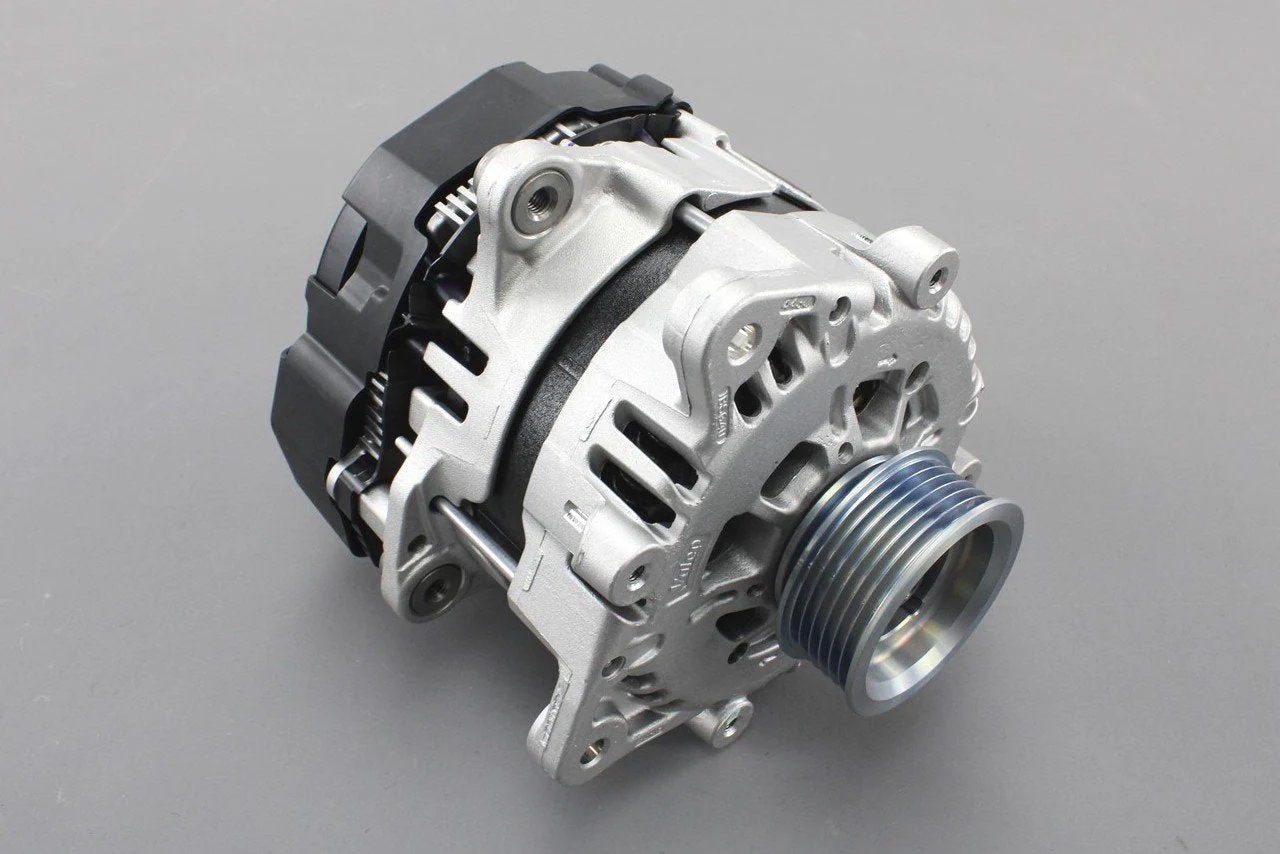
e-TSI/e-TEC motorların 48V alternatör sorunu
Volkswagen Grubu, 2019-21'de TSI/TFSI motorlarının hafif hibrit (MHEV) versiyonları e-TSI/e-TEC'i tanıttı. 48V lityum-iyon batarya desteği, grup içerisindeki pek çok farklı motora uygulandı ancak en yaygınları 1.0 ve 1.5-litrelik üniteler:
Volkswagen:
- Golf 1.0-1.5 eTSI
- Passat Variant 1.5 eTSI
- Tiguan 1.5 eTSI
Seat:
- Leon 1.0-1.5 eTSI
Skoda:
- Octavia 1.0-1.5 eTEC
Audi:
- A3 35 TFSI
- Q3 35 TFSI
Cupra:
- Leon 1.5 eTSI
- Formentor 1.5 eTSI
- Terramar 1.5 eTSI
Teoride performansı artırırken emisyonları düşürmesi amaçlanan bu motorlar, kronik alternatör/şarj dinamosu arızası nedeniyle bugüne kadar binlerce kullanıcıyı mağdur etmiş durumda.
- 48V Batarya: Hibrit sistemi çalıştıran enerji deposu. Araç hareket ederken rejeneratif frenleme ile şarj oluyor.
- Marş-Alternatör Ünitesi: Marş motoru ve şarj dinamosu görevi gören elektromekanik bir parça. Kayış tahrikli bu ünite, direkt motorun krank miline bağlı.
- DC/DC Dönüştürücü: 48V sistem ile aracın geleneksel 12V aküsü arasındaki enerji dönüşümünü sağlıyor.
Bu sistem, her hibrit gibi, otomobilin düşük hızlarda veya kalkış sırasında elektrik motorunun sağladığı destekle daha az yakıt tüketmesini hedefliyor. Ayrıca frenaj sırasında ortaya çıkan enerjinin geri kazanımını sağlıyor.
Sorun Nerede?
Alternatörde:
- Ünitenin aşırı yüklenmesi sonucunda mekanik veya elektriksel arızalar.
- Alternatör kayışının gevşemesi veya kopması.
- Ünitenin bağlantılarında yaşanan oksitlenme veya temas sorunları.
Bu arızalar sonucunda:
- Hem 48V hem de 12V sistemler beslenemiyor ve aracın elektrik sistemi devre dışı kalıyor.
- Araç çalışmıyor veya hareket halindeyken aniden duruyor.
- Gösterge panelinde "Hata: 48V beslemesi" uyarısı çıkıyor.
Maliyetler
Fabrika verilerine göre 100 km'de yaklaşık 0.5 litre yakıt tasarrufu sağlamak uğruna geliştirilen bu komplike ve pahalı sistemin arızaları, bulunduğu tüm VAG modellerinde ortaya çıkabiliyor. Söz konusu alternatörün üreticisi Valeo, bu problemden ötürü Audi'yle davalık oldu ve bazı ülkelerde geri çağırmalar yapılarak ücretsiz parça değişimine gidildi. Ancak ülkemizde, garanti kapsamına girmeyen araçlarda alternatör ünitesi, aküyle birlikte yenileniyor ve marka-modeline göre 100-150 bin TL arası bir masrafa yol açıyor.
*50 TDI ve 55 TFSI gibi daha güçlü ve gene 48V hibrit sistem kullanan Audi’ler de aynı riskle karşı karşıya.
*Audi A4 45 TFSI gibi bazı modellerde 48 değil 12V’luk daha basit bir sistem kullanılıyor. Onların alternatörü farklı ve jeneratör görevi görmüyor, dolayısıyla bu sorundan muzdarip değiller.
Tedarik
İhtiyaç duyulan Valeo e-TSI alternatör ürünü için yapılan tedarik çalışmaları sonucunda aşağıda bilgileri yer alan firma ile çalışılması uygun görülmüştür.
Tedarikçi Firma Bilgileri:
- Firma Adı: OTO DEMIR DIŞ TİCARET ANONİM ŞİRKETİ
- Adres: BAĞCILAR-GÜNGÖREN SAN.SİT. 13.BLOK NO.5 BAŞAKŞEHİR İSTANBUL
- Telefon: 02126713030 +905336005930
- E-posta: otodemir@otodemir.com.tr
- Web Sitesi: www.otodemir.com.tr
- İlgili Kişi: KUTAY AKYOL, VAG grubu yedek parça satış sorumlusu
- Ürün: VALEO E-TSI ALTERNATÖR
- Teslim Süresi: Aynı gün teslimat, kurye, kargo, otobüs
- Garanti / Destek Bilgisi: VALEO Türkiye 2 sene garanti
İlgili ürünün temini konusunda bu firma ile doğrudan iletişime geçebilir, fiyat teklifi, teslimat ve teknik detaylar hakkında bilgi alabilirsiniz. Süreçle ilgili tarafımca başka bir yönlendirme yapılmadıkça, bu tedarikçi tercih edilmelidir.
Herhangi bir konuda desteğe ihtiyaç duyarsanız kendileriyle iletişime geçmekten çekinmeyiniz.


9 Yorum